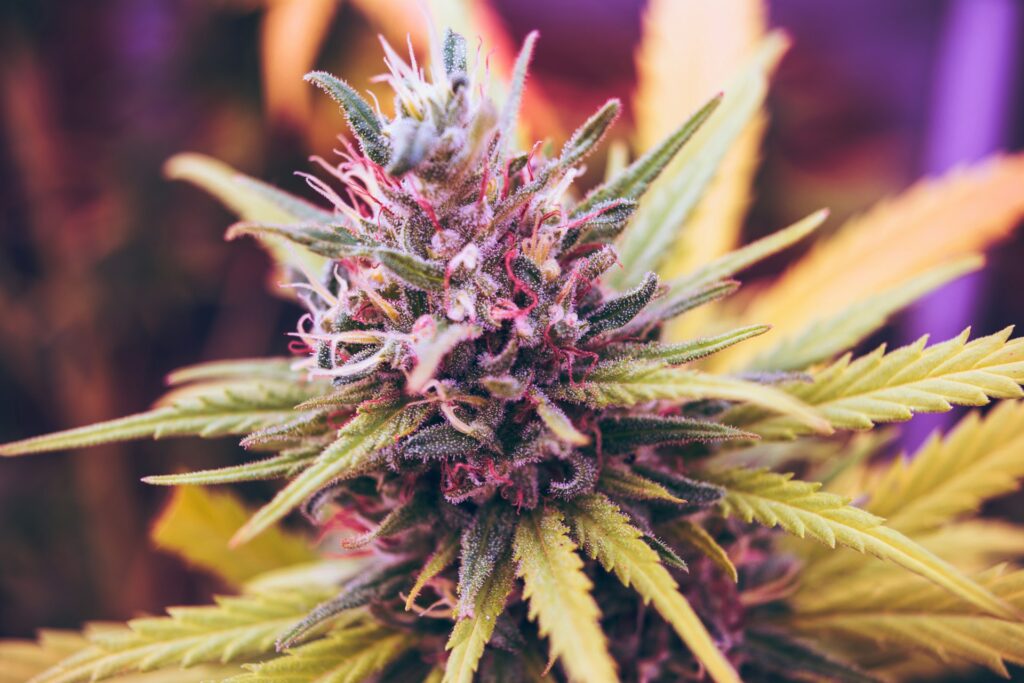The DEA plans to reclassify cannabis from Schedule I to Schedule III of the Controlled Substances Act, recognizing its accepted medical use and lower abuse potential. While this rescheduling marks significant progress, it does not equate to federal legalization of recreational cannabis, and broader federal policy changes, including potential legalization, remain under congressional consideration.
DEA Agrees to Reclassify Cannabis as a “Less Dangerous” Substance


In a landmark decision, the Drug Enforcement Administration (DEA) has announced its intention to move cannabis from Schedule I to Schedule III of the Controlled Substances Act (CSA), following recommendations from the U.S. Department of Health and Human Services (HHS).
This decision, which breaks with over 50 years of classifying cannabis alongside heroin and denying its medical uses, will have profound implications.
For more news like this, along with all the latest in legalization, research, and lifestyle, download our free cannabis news app.
Understanding the DEA Rescheduling from Schedule I to Schedule III
The proposed DEA rescheduling from Schedule I to Schedule III recognizes that cannabis has accepted medical use and a lower potential for abuse than substances listed under Schedules I and II. Moving cannabis to Schedule III would allow the federal government to recognize its medical value, paving the way for increased research and easing restrictions on legal cannabis businesses in the states.
According to Marijuana Moment, this change would “remove research barriers currently imposed on scientists wishing to study Schedule I substances.” It would also allow cannabis businesses licensed by various U.S. states to benefit from federal tax deductions previously unavailable under IRS code 280E.
“Today, the Attorney General has circulated a proposal to reclassify cannabis from Schedule I to Schedule III. Once published in the Federal Register, it will trigger a formal rule-making process,” stated the Department of Justice’s Director of Public Affairs, Xochitl Hinojosa, in a press release.
Sources close to the DEA rescheduling process, who spoke under the condition of anonymity to Cannabis Wire, confirmed that a memo from the DOJ’s Office of Legal Counsel — sought by the Attorney General for legal advice — is expected to be published simultaneously with the DEA’s Notice of Public Rulemaking in the Federal Register.
Details on the DEA Memo
The DEA memo will clarify that the Single Convention on Narcotic Drugs does not constitute an obstacle to moving cannabis from Schedule I to Schedule III, that the two-part test conducted by the HHS to support its recommendation is adequate, and that the DEA should substantially defer to the HHS’s findings in favor of Schedule III, following public commentary.
Legal and Practical Implications
Despite this advancement, it should be noted that the DEA rescheduling cannabis does not equate to legalization. Regarding the manufacture, distribution, and possession of recreational cannabis, these activities remain illegal under federal law and can still be subject to federal prosecution, regardless of their status under state law.
Moreover, while some penalties for activities related to cannabis may be reduced under Schedule III, cannabis will still be considered an illegal substance at the federal level.
The rescheduling of cannabis is promising for scientific research on cannabis. As recognized by former DEA Administrator Asa Hutchinson, the rescheduling could facilitate the conduct of more studies, thus contributing to a better understanding of the effects of cannabis on health. This development could lead to broader acceptance of cannabis-based medications that meet FDA standards for prescription.
Broader Implications for Federal Cannabis Policy
Although the DEA proposal marks a significant advancement, its implications raise broader questions about federal cannabis policy. As noted in a Congressional report, Congress retains the power to enact more substantive changes, such as downgrading or legalizing cannabis through legislative action. The recent reintroduction of a legalization bill by Senate Majority Leader Chuck Schumer is a testament to ongoing efforts to revise federal cannabis laws.
The American public’s sentiment towards cannabis has shifted significantly, as reflected in the rescheduling proposal. Asa Hutchinson also noted that, while the medical consensus on the benefits of cannabis lags behind public opinion, the rescheduling aligns with societal perceptions of the value of cannabis.
—
(Featured image by Esteban López via Unsplash)
DISCLAIMER: This article was written by a third-party contributor and does not reflect the opinion of Hemp.im, its management, staff, or its associates. Please review our disclaimer for more information.
This article may include forward-looking statements. These forward-looking statements generally are identified by the words “believe,” “project,” “estimate,” “become,” “plan,” “will,” and similar expressions. These forward-looking statements involve known and unknown risks as well as uncertainties, including those discussed in the following cautionary statements and elsewhere in this article and on this site. Although the company may believe that its expectations are based on reasonable assumptions, the actual results that the company may achieve may differ materially from any forward-looking statements, which reflect the opinions of the management of the company only as of the date hereof. Additionally, please make sure to read these important disclosures.
First published in Newsweed, a third-party contributor translated and adapted the article from the original. In case of discrepancy, the original will prevail.
Although we made reasonable efforts to provide accurate translations, some parts may be incorrect. Hemp.im assumes no responsibility for errors, omissions or ambiguities in the translations provided on this website. Any person or entity relying on translated content does so at their own risk. Hemp.im is not responsible for losses caused by such reliance on the accuracy or reliability of translated information. If you wish to report an error or inaccuracy in the translation, we encourage you to contact us.



Comments are closed for this post.